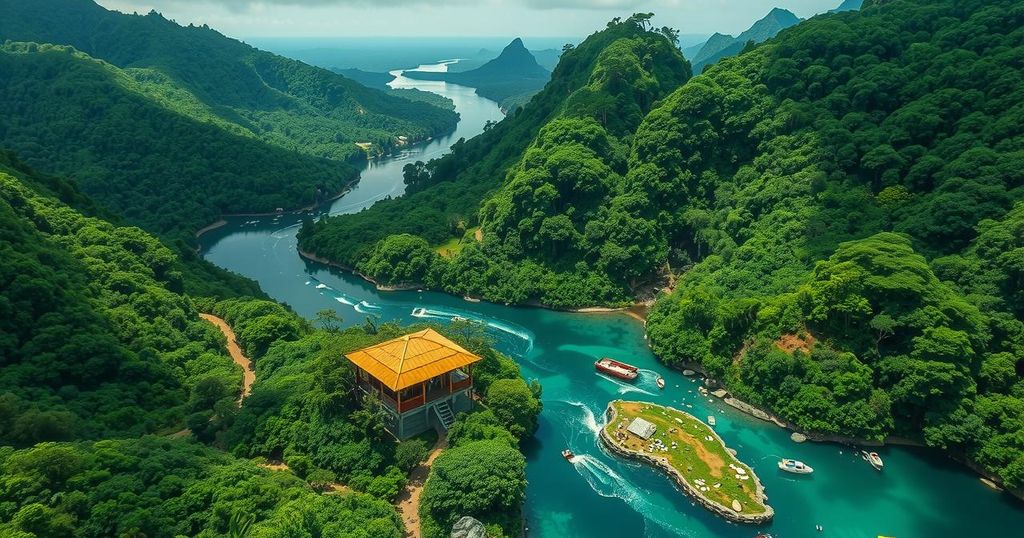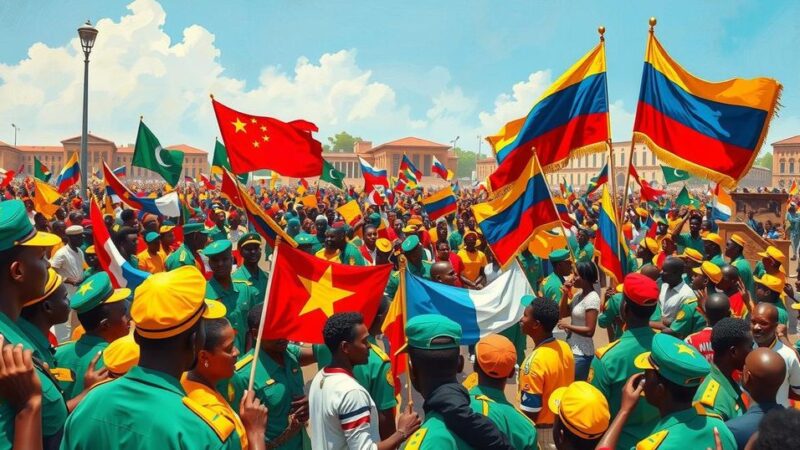Venezuela has rejected a UN court ruling prohibiting elections in the disputed Essequibo region, asserting claims over the territory. The government insists the court has no jurisdiction and cites historical claims dating back to colonial times. Tensions between Venezuela and Guyana remain high amid ongoing legal battles and military threats.
Venezuela’s government has made clear its strong opposition to a ruling issued by the International Court of Justice (ICJ), which instructed the country to refrain from conducting elections in a disputed resource-rich territory claimed both by Venezuela and Guyana. The announcement came following a request from Guyana urging the ICJ to step in, citing fears that Venezuela’s planned elections scheduled for May 25 could be damaging to the Essequibo region.
Nicolás Maduro’s administration released a statement reiterating its long-held stance against recognizing the court’s authority, emphasizing that “international law does not permit interference” in matters pertaining strictly to Venezuelan law. In their differing views, Guyana argues that elections could lead to “irreparable harm” in a region vital to its national identity, while Venezuela insists Essequibo is historically theirs, referring to it as an integral part of their territory.
The Essequibo region, encompassing two-thirds of Guyana, contains significant natural resources, including gold, diamonds, and timber, and its proximity to lucrative offshore oil resources elevates the stakes significantly. Venezuelan leaders have historically claimed this region based on boundaries set during the colonial era, disputing an 1899 international arbitration decision that established the current border.
In 2018, after years of mediation without resolution, Guyana sought a court ruling that would affirm the 1899 decision as valid. However, Venezuela contends that a 1966 agreement intended to mediate the issue effectively annulled the earlier arbitration, leading to today’s ongoing legal battle while tensions escalate between the two nations.
Earlier this season, Maduro threatened military action to annex the region after proposing a referendum regarding its status. Diplomatic efforts have been made, including a recent emergency summit that encouraged both nations to avoid armed conflict. Despite these discussions, tensions simmer, with Venezuelan naval forces accused of intruding into disputed waters encompassing valuable oil deposits.
As Venezuelan voters prepare for elections this month, their government appears set on maintaining its claims over Essequibo, which Maduro’s government labels a “historical, constitutional, and moral mandate.” Meanwhile, Guyana’s president has issued statements condemning Venezuelan naval activities in the area amid rising concerns over the consequences of these disputes on regional stability.
In summary, Venezuela’s outright rejection of the UN’s ruling underscores its steadfast claim over the Essequibo region, a territory also held by Guyana. The geopolitical dynamics surrounding this dispute are complex, with historical grievances complicating resolution efforts. As elections in Venezuela loom, the government’s position appears to remain unwavering, despite international legal objections and rising tensions between the two countries.
Original Source: www.theguardian.com






